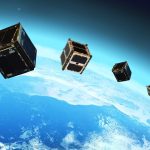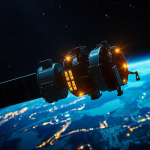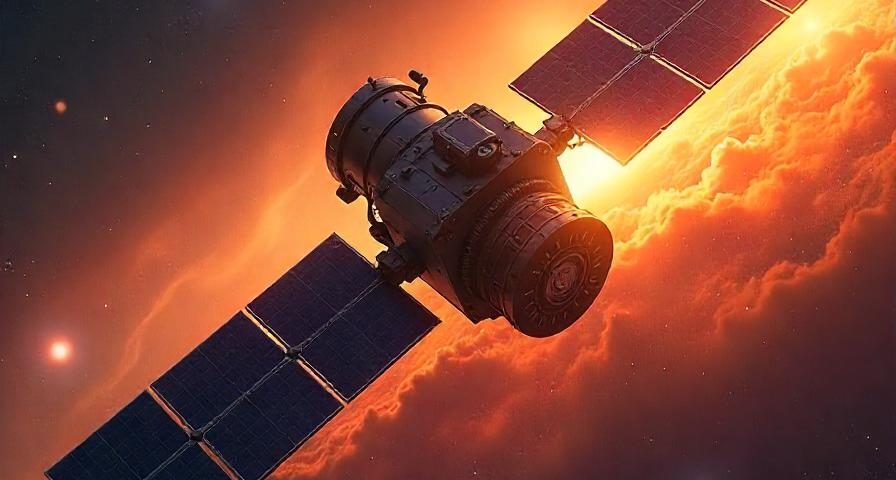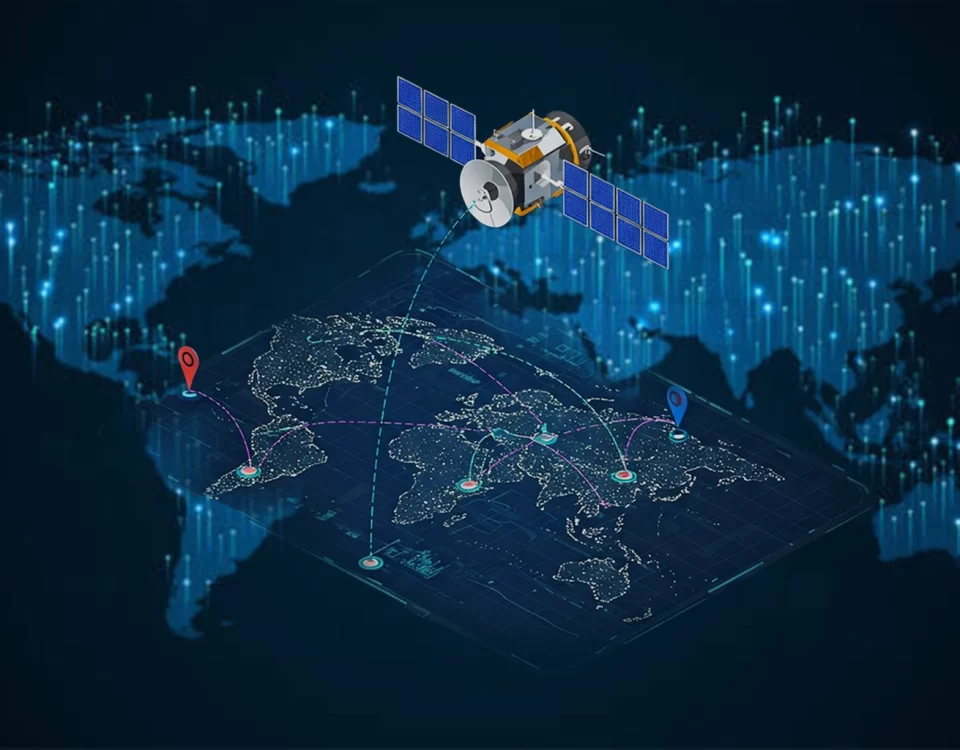
What are smallsats and cubesats
January 6, 2025
How does a magnetometer work in a satellite?
January 26, 2025Imagine a beautiful dance in space: Planets spin around stars, and moons spin around planets. In this amazing dance, we find satellites.
When we think of satellites, we often picture those amazing machines that orbit Earth, sending us TV shows or telling us the weather. But “satellite” actually means much more. It includes our own Moon, and even the many man-made objects we’ve launched into space.
Natural Satellites: Space Companions
- A satellite is any object that travels around another object in space.
- Our Moon is the most well-known natural satellite. It travels around Earth as Earth travels around the Sun.
- Many planets have their own moons. Jupiter, for example, has many different moons, each with its own special features.
- These natural satellites are important. They affect how planets move and change. They can influence how planets orbit, tides, and even how their atmospheres develop.
- Studying these natural satellites helps us understand how our solar system formed and evolved.
Artificial Satellites: Human-Made Wonders
Artificial satellites are objects made by humans that travel around Earth.
The first artificial satellite, Sputnik 1, was launched by the Soviet Union in 1957. This was a big step for humanity, showing we could explore space. Since then, many thousands of satellites have been launched. These satellites have many uses, changing how we communicate, navigate, and understand the world.
- Communication Satellites: These satellites help us send signals like TV, internet, and phone calls around the world.
- Navigation Satellites: These satellites help us find our way using systems like GPS.
- Earth Observation Satellites: These satellites help us learn about Earth, like tracking weather and monitoring the environment.
- Scientific Research Satellites: These satellites help scientists study space, like the Sun and other planets.
- Military Satellites: These satellites are used for military purposes, like spying and communication.
How Satellites Stay in Space?
Satellites stay in orbit because of a balance between their speed and the pull of Earth’s gravity. The faster a satellite moves, the higher it needs to be to stay in orbit. Satellites orbit Earth in different ways:
- Low Earth Orbit (LEO): These satellites orbit close to Earth. They are good for observing Earth and some science
- experiments.Geostationary Orbit (GEO): These satellites orbit very high above Earth. They stay in the same position above a certain spot on Earth, which is good for communication.
- Polar Orbits: These satellites fly over the North and South Poles. They are helpful for weather and environmental monitoring.
How Satellites Have Changed Our Lives?
Satellites have greatly improved communication. We can now easily connect with people all over the world and share information quickly. Satellites have made navigation and transportation much better. GPS helps us find our way and makes travel safer and more efficient. They help us predict the weather more accurately. This helps us stay safe during storms and other natural disasters. They also have helped us learn more about the universe. We can now study things like climate change and explore space more effectively. The satellite industry has created many jobs and helped the economy grow.
Challenges and the Future of Satellites
Despite their numerous benefits, satellites also present challenges. There’s a growing problem of space junk, which can collide with working satellites and damage them. With more and more satellites in space, the risk of collisions is increasing. We need to find ways to keep space clean, remove old satellites, and use space responsibly.
The future of satellites holds immense promise. Advancements in technology, such as miniaturization, improved propulsion systems, and advanced materials, are enabling the development of smaller, more capable, and more affordable satellites.40
The future of satellites appears bright. New technology is making satellites smaller, more powerful, and less expensive. Many small satellites are being launched to provide internet, improve navigation, and better understand Earth.
Satellites, both natural like our Moon and artificial ones made by humans, are very important. They help us understand the universe and how we fit into it. From the Moon to the satellites that connect us globally, they have changed our lives in many ways. As we continue to explore space, satellites will always be crucial for discovery and innovation.




